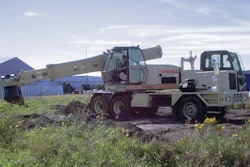The delivery to Keolis consists of urban, suburban and intercity buses. The majority, 123 urban and suburban buses, will be used in the greater Stockholm area, where Keolis operates for Storstockholms Lokaltrafik (SL).
“The order is very important to us and helps strengthen our position as a strong partner in the public transport industry,” says Ove Forsberg, Bus Sales Manager at Scania-Bilar Sverige. “We have had a rewarding partnership with Keolis in Sweden for a long period, and we see this order as a result of that.”
Scania has previously delivered ethanol- and biogas-fuelled vehicles to Keolis, and the new buses will be equipped with engines for the renewable fuels ethanol and rapeseed methyl ester (RME). Compared to using a conventional diesel engine, Keolis reduces carbon-dioxide emissions by 70% by using ethanol; for RME, the corresponding figure is 64%.
Deliveries of the buses will take place from April until July, and the buses will start operating between June and August.
Keolis Sverige’s vision is to use locally suited, sustainable transport to double transit ridership in Swedish cities. By the second half of 2011 Keolis’ vehicle fleet in Sweden will consist of approximately 2,000 buses, of which over 60% will be running on renewable fuels.
Keolis’ Technology and Environmental Director Håkan Björk says, “This and previous large orders to Scania are a result of a close cooperation, giving us well-developed and customised products for our operations.”
Scania has more than 20 years of experience with ethanol buses, having delivered a total of about 800 ethanol buses. More than 700 of them have gone to Swedish cities, but the company has also delivered ethanol buses for commercial service to countries such as Great Britain, Spain, Italy, Belgium and Norway.
The world's largest fleet of ethanol buses operates in the greater Stockholm area, where Stockholm County Council has set the goal that at least 50 percent of all passenger traffic will employ renewable fuels by 2012.
Ethanol accounts for around 90 percent of renewable vehicle fuels available today. It is the most cost-effective such fuel in the market in terms of availability, infrastructure and access to tried-and-tested technology



















